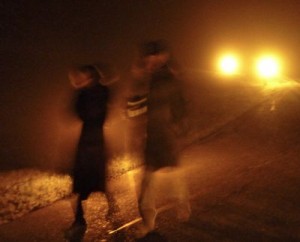Subtle Energy, Trauma & Transformation Part 4: Global Change & Intuitive People

It makes perfect sense that intuitive people respond more to global events. We feel them. If you think about it, you will see that intuitive people, when other factors are the same, go through life changes more quickly than average. Seeing through into what is going on, and being able to grasp the life lessons within situations and relationships makes for a faster response.
changes more quickly than average. Seeing through into what is going on, and being able to grasp the life lessons within situations and relationships makes for a faster response.
We all say “I’m not going to do THAT again” sometimes. Intuition increases your ability to tell at the start whether a situation is actually new or THAT again. If we THINK it is different but it is not, we stay stuck. If we think it is the same and it is not we remain rigid with respect to it–defensive—and do not engage in it and grow. It follows that flexible, intuitive people grow faster. This accelerates life changes.
Speedy life changes are not particularly comfortable. Poise through change demands spiritual detachment and works-over the ego as we become self-aware through new experience. This is hugely true during transformation. So when the world is changing quickly, those of you sensitive, positive people who are looking for constructive ways to improve your lives and the world are often uncomfortable.
In response to the world changes, those of us who are able, are becoming more open to compassion, more aware of others, and keener to the preciousness of life. We long to use our hours and days for something truly meaningful. Uncertainty about the potential duration and quality of our lives makes transformation a much more immediate goal than it is in times of inner peace. These choices accelerate the pace of change even more.
The process of becoming aware IS exposing. Consider the first post of this series, with the list of personal traits and issues that pop into awareness as awareness expands.
 Another reason some feel exposed is a side-effect of feeling so directly connected with the rest of the world. It’s as if we can no longer effectively hide out at home to get a break from external energies. One highly intuitive client said she felt “very exposed and vulnerable.” She found some relief in long periods of time alone.
Another reason some feel exposed is a side-effect of feeling so directly connected with the rest of the world. It’s as if we can no longer effectively hide out at home to get a break from external energies. One highly intuitive client said she felt “very exposed and vulnerable.” She found some relief in long periods of time alone.
A lot of energy-sensitive folk are spending periods in isolation lately. As one highly-aware friend put it, “I’ve had a few days where I’d just as soon take a beating as pick up the phone.” I could relate, even if I could not indulge.
Feeling vulnerable runs the gamut between wondering whether one will still have a house, a job, a family, our health, or a life by the time the world quits bucking, to feeling floating anxiety in resonance with the pervasive and ambient feelings of others. This is in addition to our internal, personal response to major change. If the way that you receive internal guidance is also in flux, you may have intermittent access to the clarity on which you usually rely.
I will take up the topic of inner guidance and life direction in some subsequent posts. The next post details specific experiences energy-sensitive people experience when planetary changes sweep the globe.
If you can use this period of change to transform YOUR life, what would you like to create?
What is precious or meaningful to you?
Can you see a way to aim yourself toward what you value, using the current disruption to your advantage?





























